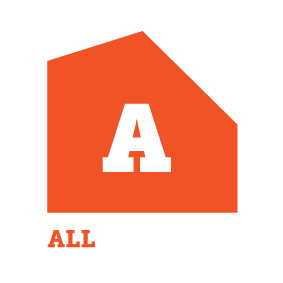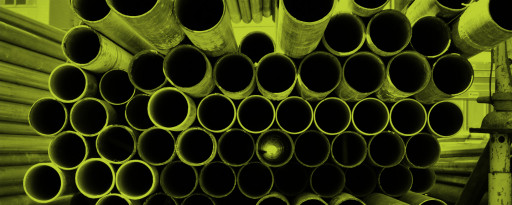Know Your Stuff: Revisiting supervision
Codewords 76: January 2017
The Building Practitioners Board has recently written a significant complaint decision relating to supervision of building work provided by licensed building practitioners (LBPs). While supervision has been covered in earlier issues of Codewords, this decision provides further important information for LBPs.

In C2-01143, the complaint against the LBP was about the poor level of supervision they provided to others. The Board upheld the complaint and the LBP was disciplined. While the work involved was not carried out under a building consent, the LBP had undertaken to supervise and control the work of others and the Board decided they could be held accountable for their actions.
As part of the complaint decision, the Board provided a breakdown of some of the major considerations, which LBPs should bear in mind when they are supervising work.
In terms of building work the definition of supervision is:
- supervise, in relation to building work, means provide control or direction and oversight of the building work to an extent that is sufficient to ensure that the building work—
- (a) is performed competently; and
- (b) complies with the building consent under which it is carried out.
The Board’s major considerations are:
Supervision applies to all building work supervised by an LBP
LBPs can be held to account for building work done under their supervision. If there is no requirement for a building consent then it must be performed competently. If there is a building consent then your work must also comply with that.
Type and complexity of the building work to be supervised
Some types of work are inherently riskier and more complex than others. Generally the more complex and risky the work, the more supervision is needed to ensure that work is carried out competently.
For example, you would provide more support to, and supervision of, someone carrying out the construction of a multi-planed roof structure than someone building a standard gable-end roof.
Experience of the person being supervised
The degree of supervision required depends on the ability of the person you are supervising. A first-year apprentice requires more, and closer, supervision than someone who has been working in the trade for many years. You might work on-site every day with the apprentice but visit other experienced and skilled or semi-skilled staff a few times each week or at key points in the building work.
Supervisor’s experience in working with the person being supervised and confidence in their ability
While similar to the previous consideration, this relates more to the supervisor’s confidence in their co-worker’s ability. It may be that you have a fourth-year apprentice who has shown they are very cautious and careful compared to a semi-skilled co-worker who rushes their work and doesn’t take time to read plans properly.
Although the apprentice has been working for less time, you might have more confidence in their ability to work without direct supervision and so may spend less time with them. Similarly, if you have observed someone perform a task competently on more than one occasion then it is more likely they will be able to do this again without direct supervision.
It is always good to take a conservative, risk-based approach until you have developed a good grasp and understanding of the ability of the people you are supervising. It is also important to consider which parts of the job are more complex and will need more supervision.
Number of persons or projects being supervised
As is noted above, supervising others means you are directly responsible for ensuring their work is performed competently and to the building consent if there is one. As a supervisor you need to be able to provide each worker or each project with a sufficient level of supervision to ensure that the work is carried out competently.
However, there are obvious limits on how much work can be adequately supervised and supervisors need to be aware when they become too busy to provide good support to their co-workers.
Geographic spread of the work being supervised
Supervision mostly involves direct site contact with co-workers and observation of the building work taking place. There might be occasions where some supervision can be undertaken remotely (by phone for example), but generally a supervisor should have regular direct contact at the site and with the people they are supervising.
Consider the geographical spread of your work – if you have jobs in Auckland, Wellington and Napier, it’s going to be difficult to provide adequate supervision to all these jobs given the physical separation of these sites.
The compliance of the building work
Ultimately most complaints about LBPs include concerns as to whether the building work has been performed competently and meets the requirements of the building consent, if there is one. If there are multiple or serious non-compliance issues then supervision of that work will come under close scrutiny. The supervising LBP may be disciplined, fined or lose their licence.
Conclusion
Ensure you are providing sufficient support for the people you are supervising for the work that they undertake, and that you can be there when needed. You need to have good business practices in place so that those you are supervising are able to reach you when they need support or clarification. If you are not able to provide the required level of supervision to your workers, you may need to engage an LBP to supervise or upskill some of your staff to become LBPs.
Read the decision about Complaint number C2-01143 on the LBP website.
Quiz
1. What kind of employee could you visit occasionally to check if there are any outstanding issues and that they know what they are doing?
- A first-year apprentice.
- An experienced worker whom you’ve worked with for several years.
- An experienced worker that you’ve only recently employed but aren’t sure of their ability.
2. How far apart can your jobs be so that you can supervise them both?
- It depends on the staff on-site – you need to know their abilities to know how much supervision is required.
- 20 minutes’ drive.
- As far as Wellington and Auckland.
3. What can happen if you don’t provide good supervision?
- Nothing.
- Your worker could be told off by the local council inspector.
- You could be disciplined by the Board.
4. How do you know what is good supervision?
- You need to ensure your workers have enough support, taking into account their skills, experience and knowledge of their current task.
- You don’t need to worry about it, as long as you sign a record of work, it's good enough.
- No amount of supervision is good enough – you need to be on-site with all of your workers every minute.
Check answers
1. What kind of employee could you visit occasionally to check if there are any outstanding issues and that they know what they are doing?
b. An experienced worker whom you’ve worked with for several years.
2. How far apart can your jobs be so that you can supervise them both?
a. It depends on the staff on-site – you need to know their abilities to know how much supervision is required.
3. What can happen if you don’t provide good supervision?
c. You could be disciplined by the Board.
4. How do you know what is good supervision?
a. You need to ensure your workers have enough support, taking into account their skills, experience and knowledge of their current task.
